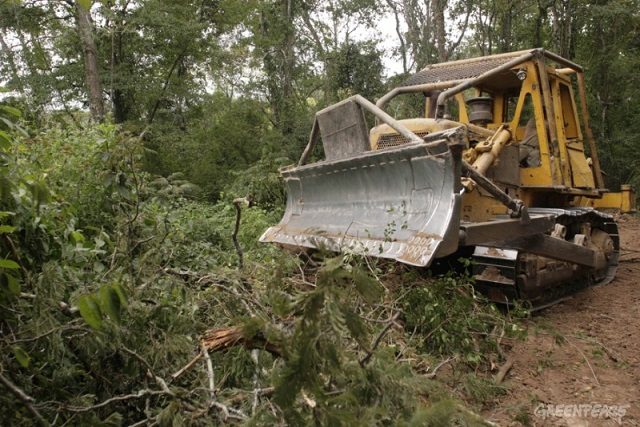Different civil organizations expressed a fervent rejection of a bill that would enable the commercialization of deforestation wood.
According to their claims, they seek to modify the normative text that regulates sanctions for illegal logging in Chaco. “It would consolidate an unsustainable exploitation model,” they state.
“Serious setback”: widespread rejection of a project that would enable the sale of deforestation wood
The organizations Aves Argentinas, Fundación Vida Silvestre Argentina, and Fundación Ambiente y Recursos Naturales (FARN) expressed their “deep concern regarding the imminent treatment of bill 1861/2024 in the Legislature of the province of Chaco.”
It is scheduled for this Wednesday, April 23. According to their arguments, the project proposes to modify key articles of Law 2079-R regulating sanctions for illegal deforestation.

It would include article 45 bis, which would allow “legalizing” the commercialization of forest products obtained illegally through private contracts.
“If this bill is approved, it would institutionalize a perverse incentive, promoting the business of wood from illegal deforestation,” said Francisco González Táboas, Director of Institutional Coordination of Aves Argentinas.
“This would imply a huge setback for the protection of the native forests of Chaco and would consolidate an unsustainable exploitation model,” he added.
Chaco is one of the provinces most affected by deforestation. In 2024, almost 40,000 hectares of native forest were lost despite current legal restrictions. Since the enactment of the National Forest Law in 2007 until the end of 2022, it lost nearly half a million hectares, according to official data from UMSEF.
“The project proposes to legalize what the Forest Law penalizes, further weakening a regulation that has already been violated and that is essential for the conservation and sustainable use of our native forests,” pointed out Sebastián Fermani, Director of Wildlife Conservation.
“It is necessary to strengthen compliance with the law at the provincial level and, of course, also at the national level, to avoid inconsistencies between what the law proclaims and what actually happens,” he emphasized.
They demand the withdrawal of article 45 bis
The signing organizations demand the withdrawal of this article from the project and the design of more effective mechanisms to combat illegal deforestation, such as the confiscation of wood and the aggravation of penalties in case of subsequent burning.
These measures were also supported by observations from the Provincial Executive Branch through the Ministry of Production.
“The advance of illegal deforestation jeopardizes not only the biodiversity of the region but also the possibility of building a truly sustainable productive model for Chaco. We cannot continue to legalize the illegal,” they demanded.

